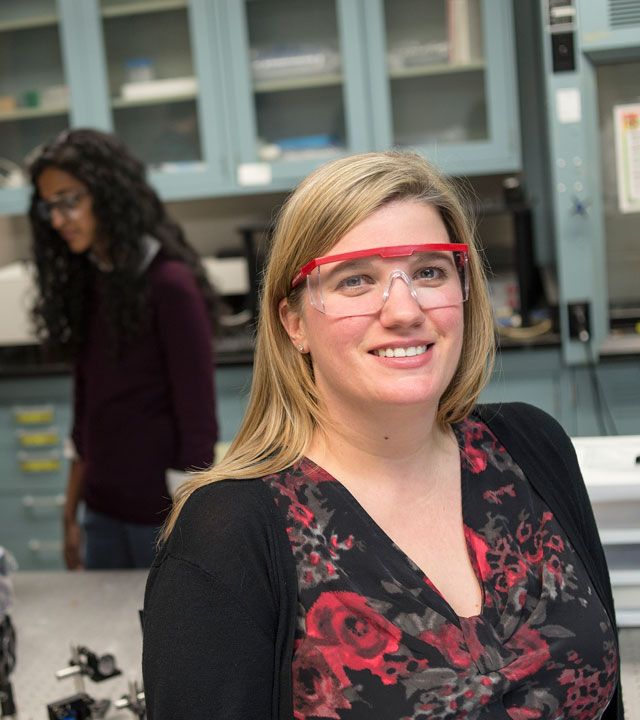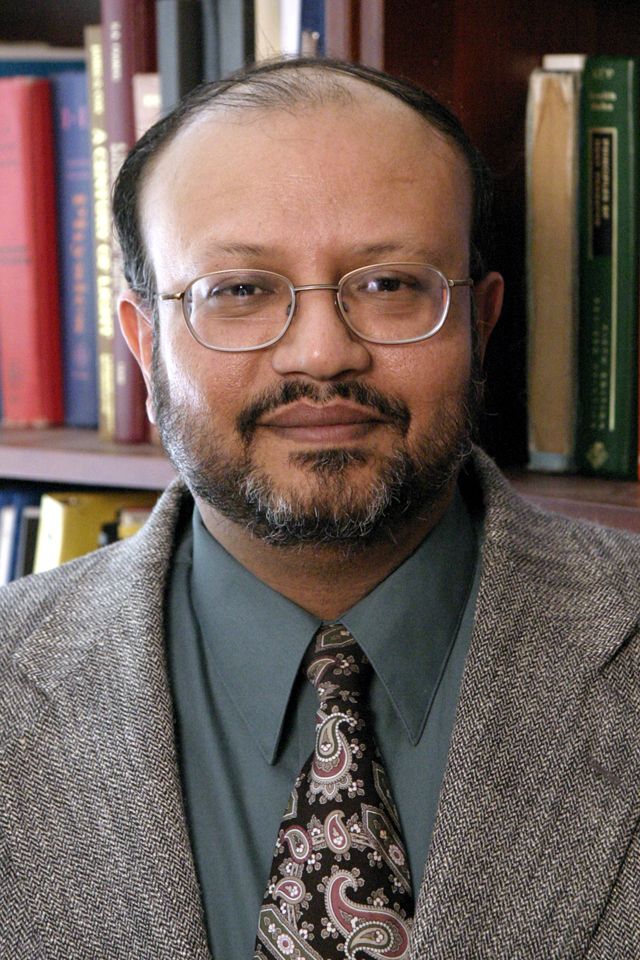Triple ChemE alumna Susan Daniel flourishes as a surface science all-star
As a Lehigh undergraduate pursuing a B.S. in chemical and biomolecular engineering, Susan Daniel '99, '01G, '05 Ph.D found herself knocking on doors during faculty office hours one afternoon, seeking a research project to fill up some extra time in her schedule, maybe pad out the ol’ resume a bit.
One of those doors belonged to Manoj Chaudhury, Lehigh’s Franklin J. Howes Jr. Distinguished Professor of chemical and biomolecular engineering, and it turned out to be one of the most important ones she’s ever opened.
At the time, Chaudhury was just beginning to study the effect of surface wettability gradients on the motion of liquid droplets as they coalesce or become subject to vibrations. Impressed by Susan’s enthusiasm for research, he invited her to work in his lab to pursue this project. Under Chaudhury’s supervision, Daniel began documenting the movement of liquid drops on surfaces with areas of unequal tension.
According to Daniel, by the time she came to Lehigh, she’d never entertained the idea of grad school. “I had a good undergraduate advisor who directed me to engineering,” she says. “That guidance eventually led me to Manoj Chaudhury’s door.”
Before she’d made it through her Master’s degree coursework, though, the research produced significant results that gained the attention of the prestigious journal Science. The article, Fast Drop Movements Resulting from the Phase Change on a Gradient Surface, was published in 2001.
Her doctoral research focused on extending upon an idea of Chaudhury’s, and she decided to specialize in surface science. She explored the effect of surface wettability gradients on the motion of liquid droplets as they coalesce or become subject to vibrations.
During the final years of her graduate study, she also collaborated with the renowned French physic and Nobel Laureate P.G. de Gennes, which led to a joint publication in Langmuir that was subsequently featured in Analytical Chemistry in June 2005. All in all, her graduate work itself resulted in publications in Science, Langmuir, and the Proceedings of the National Academy of Sciences.
"Susan's eagerness to match the expectations set by her adviser, Dr. Chaudhury, coupled with some ingenious experiments that the two of them conducted in collaboration with the late Professor John C. Chen, led to exceptionally high impact work in the area of interfacial science and heat transfer," said Mayuresh Kothare, R. L. McCann Professor and Chair of chemical and biomolecular engineering. "The paper that Susan co-authored in Science in 2001 with Chen and Chaudhury on the topic of enhanced heat transfer during phase change is now cited more than 520 times according to Google Scholar. This is an astonishing impact coming from an early research problem that Susan tackled in her dissertation. Of course, this was only the beginning of her creative endeavors and she has now shown in her own independent career at Cornell this same level of creativity and ingenuity, the origins of which can be traced back to her training and education here at Lehigh."
After earning her Ph.D. from Lehigh, Daniel continued to expand her research profile with a 2005 postdoctoral associate position in the chemistry department at Texas A&M University, where she shifted her focus to cell membranes and other biological interfaces.
“I proved something to myself in Texas,” she said. “Before that, I suppose I had some doubts about how much of my success was due to the leadership and ingenuity of my advisors. My time at Texas A&M was an opportunity to develop my own ideas and my own confidence -- working without a safety net.”
Fifteen years and 30 publications since her first academic publication, Daniel is an associate professor of chemical and biomolecular engineering at Cornell University. She leads a research group that studies how liquid drops interact with chemically-patterned solid surfaces. Their goal is to control drop shape and motion for various applications -- ranging from energy generation in outer space to miniaturized reactors that support biological experimentation.
“Everything is subject to the same physical and chemical rules,” Daniel explained, “but biology adds this extra layer of mystery. Ten years from now I want to be able to say that my work has shed light on some of the mystery.”
Read more about Daniels’ remarkable career thus far from Cornell’s College of Engineering.
-Sydney O'Tapi '18 is a student-writer with the P.C. Rossin College of Engineering and Applied Science.


